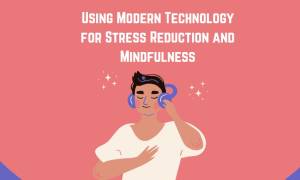An act was passed to protect people from unfair discrimination, harassment and it provides a means to bring a complaint and have it resolved. Anti-discrimination laws protect humans so that we can prevent discrimination on the basis of race, origin, sex, and color.
Later laws were made to prevent discrimination based on age or disability. Discrimination does not only violate a most basic human right but has a wider social and economic consequences.
Protection from Discrimination On The Basis Of Sex or Gender Identity:
Sadly, there is no protection from discrimination on the basis of sex or gender identity in federal law. Not everyone knows about the Sex Discrimination Act which defines a man as the person of the male sex and a woman as a person of the female sex.
This anti-discriminatory act may protect a person who is discriminated against on the basis of their legal sex, even if this is different from their sex at birth. Separate provisions prohibiting discrimination on the basis of gender identity are included by most states and territory laws.
Federal anti-discrimination legislation states that:
“It is unlawful to discriminate on the basis of status, age, race, disability, gender, intersex and sex. And this should apply everywhere regardless of the views of community”.
Here Are Few Examples That Prohibits Discrimination:
- Victoria, Queensland prohibits discrimination on the basis of gender identity.
- Discrimination on the basis of a person’s chosen gender is prohibited by South Australia.
- New South Wales prohibits discrimination against transgender.
- Tasmanian laws contain a separate gender identity ground. It includes transsexuality within their sexual orientation ground.
- Anti-discrimination Board has pointed out that a person is not allowed for any sex change or other surgery. For them, it does not matter what the person’s gender was at birth.
How Can We Get Rid Of Discrimination?
1. By Adding Policies Related To Discrimination:
Through these policies, the school district will not allow anyone in the school community to be treated differently.
No child will be allowed to harass someone because the other person is gay, lesbian or bisexual or because other people think they are.
2. Why Should We Take A Stand Against Discrimination?
People who are struggling with their sexual identity often face pressures or violence. Anti-discrimination policies tell students that school is one place where they can be safe. No one is allowed to discriminate.
3. By Adding Policies Related To Gender Identity:
We can add policies related to gender identity because transgender kids probably suffer even more harassment than gay, lesbian or bisexual students. Transgender kids need to be protected for all the same reasons.
How to Cope With Discrimination?
If we look back gender discrimination have increased. Biasness, discrimination based on origin, sex, color, and race remains a problem.
Discrimination is an everyday reality for most people as they experience some type of it on daily basis. People do report their day to day discrimination experiences and those people are from racial or ethnic minorities.
With that income, weight, age or gender are factors that are included in day to day discrimination.
It is always necessary to find solution for your problems. Dealing with discrimination is important in a healthy way for your mental and physical wellbeing.
What one can do is to:
1. Focus On Their Strengths:
When we focus on our core values it can motivate us to get succeed or it may help us to buffer the negative effects of bias.
2. Seek Support:
Whenever a person is going through discrimination that person start to believe that he is not good enough which is not true. Family and friends are our support systems.
They can remind us our worth and help us to come out of that false belief that we are not good enough. It is hard to talk about discrimination but we can ask our friends or family that how they handle such events.
3. Help Yourself To Think Clearly:
A person who is a part of day to day discrimination may have a lot of weak emotions like anger, embarrassment or sadness. It may ruin our physical and mental wellbeing.
It can increase our blood pressure, body temperature or heart rate. Always try to think before giving any kind of reaction. Focus on your anger, relax, exercise, calm your body, don’t stress, and breathe.
These steps may help us to think more clearly and help us to find how to make a clear response.
4. Get Involved:
If a person is facing discrimination related to anything they can get themselves involved with like-minded groups and organizations where they can know people who are going through similar experiences just like them.
Also if a connection is made with those people one can figure out how to address situations and respond to experiences.
Conclusion:
When a person is treated differently based on gender, race or age they forget their value as an individual, they forget who they are.
Discrimination hurts and when it is an everyday routine then it is more painful. What we can do from our side is that we never again say anything negative about anyone to anyone.
Because on whatever things we discriminate someone those things are not in their control, they cannot do anything about that.
We have to be aware of discrimination, whenever we witness it, we should ask ourselves that if there is anything we can do for us. And if we can make a change or a difference then just do it.
Choose friends carefully, the ones who discriminate are not your friends. Don’t make changes alone. People are stronger and safer when they stand together.
Share your stories, make your voices heard. Unite with ones who face a similar story or situation as you do, they can help you mentally and can support you so that you can survive.
Let everyone know how their words and actions have affected a lot of people, fight for your rights in order to make change.
Always keep in mind that no anti-discrimination policy will take us seriously unless we take an action for ourselves.














